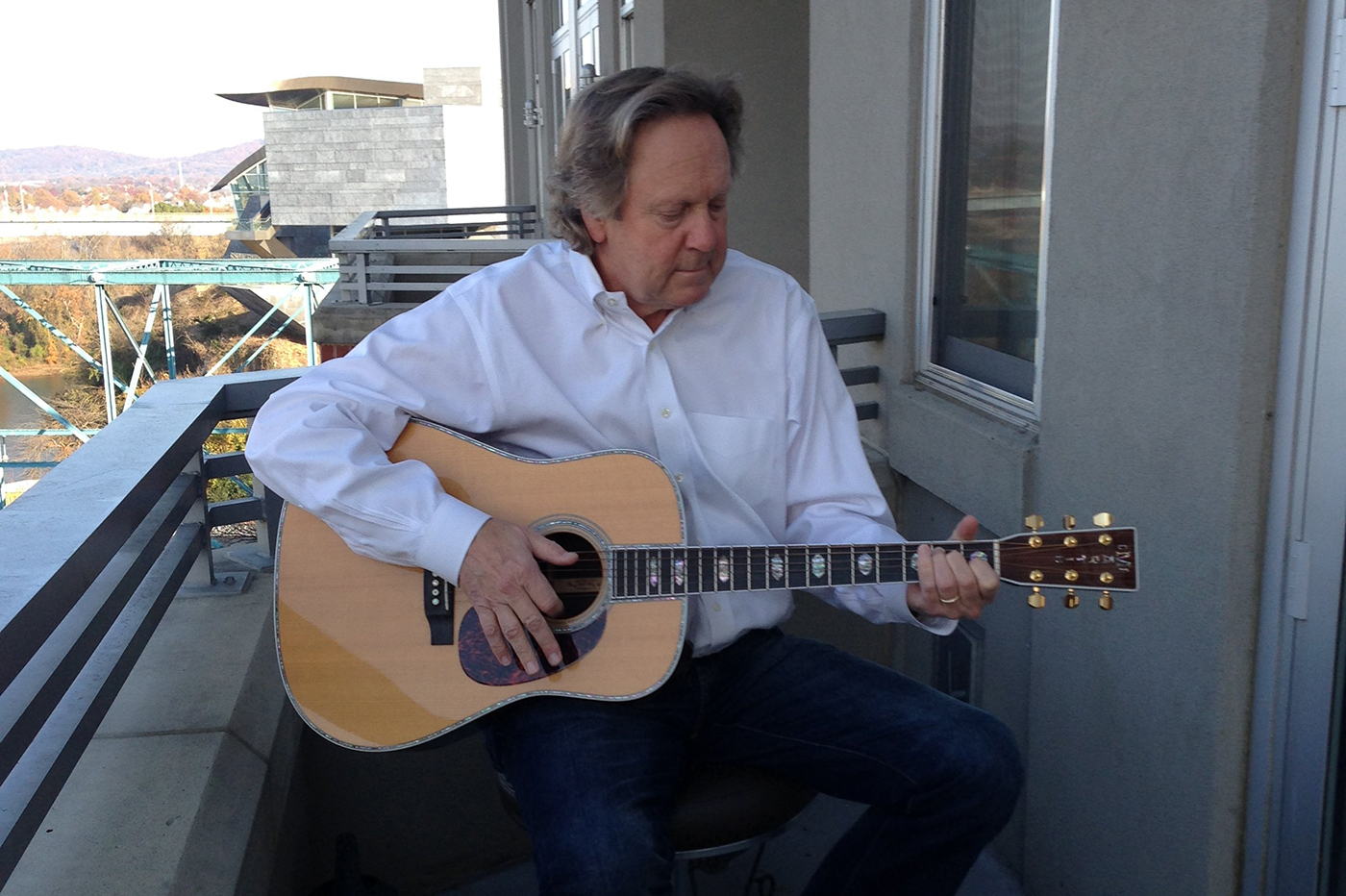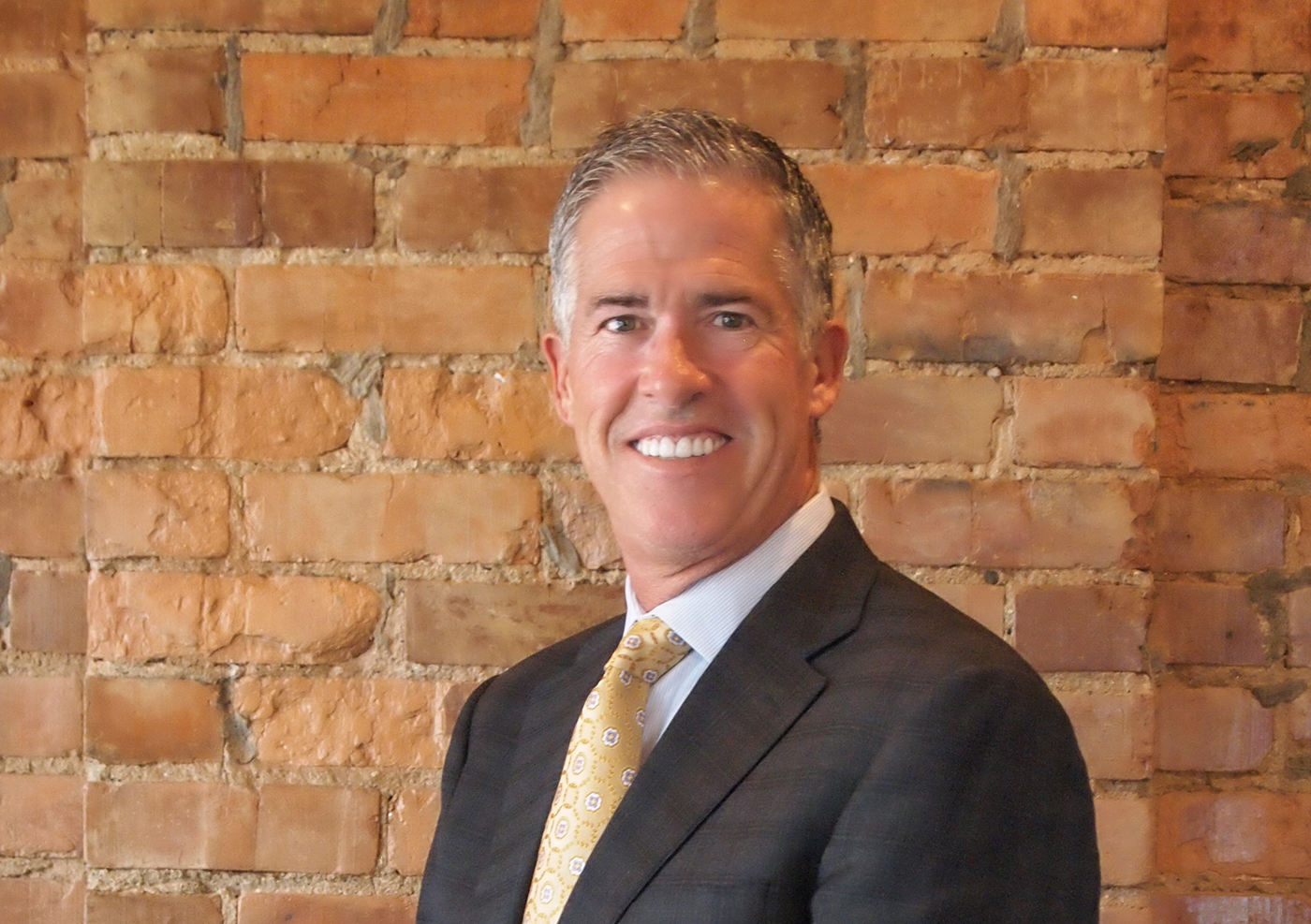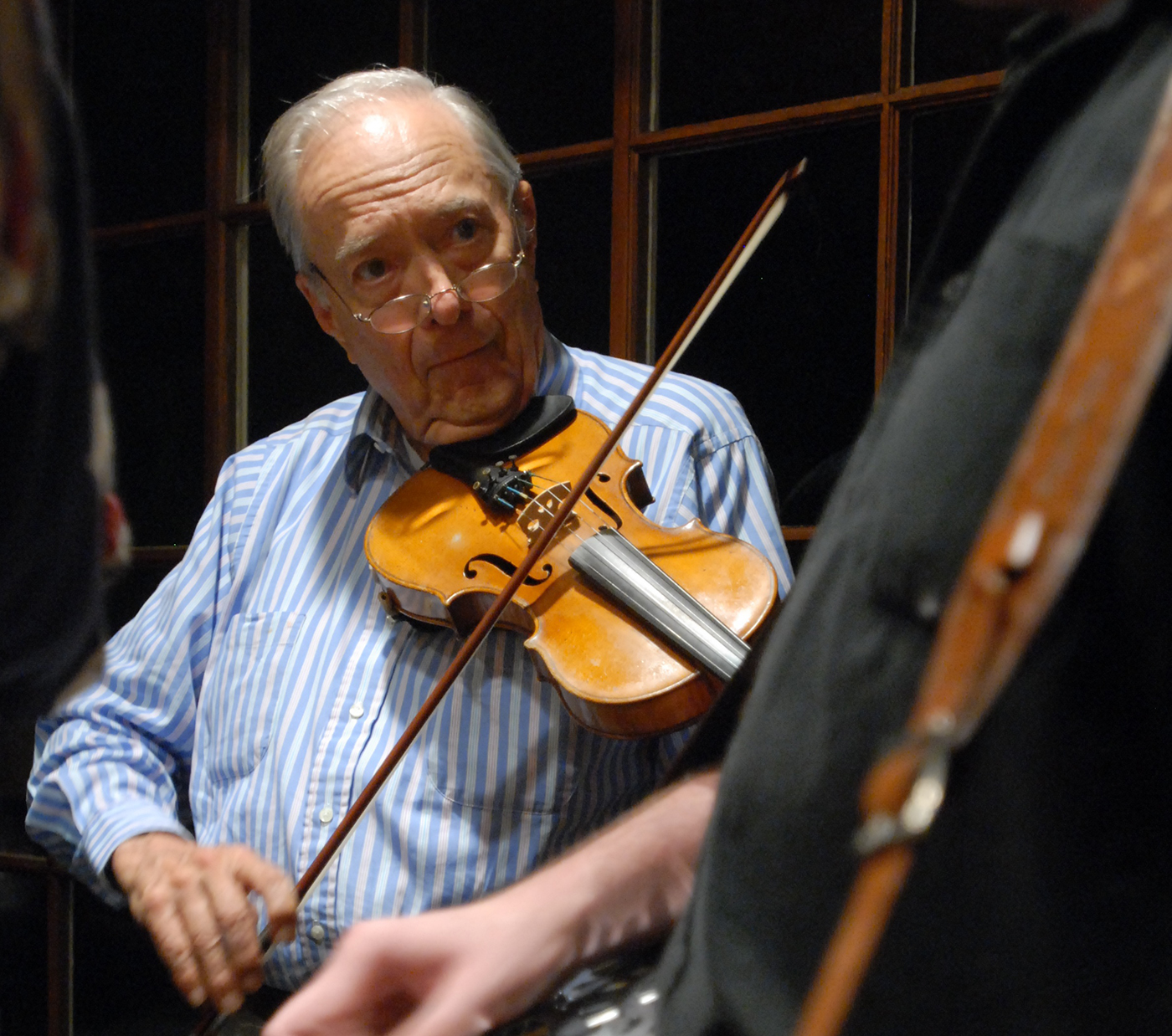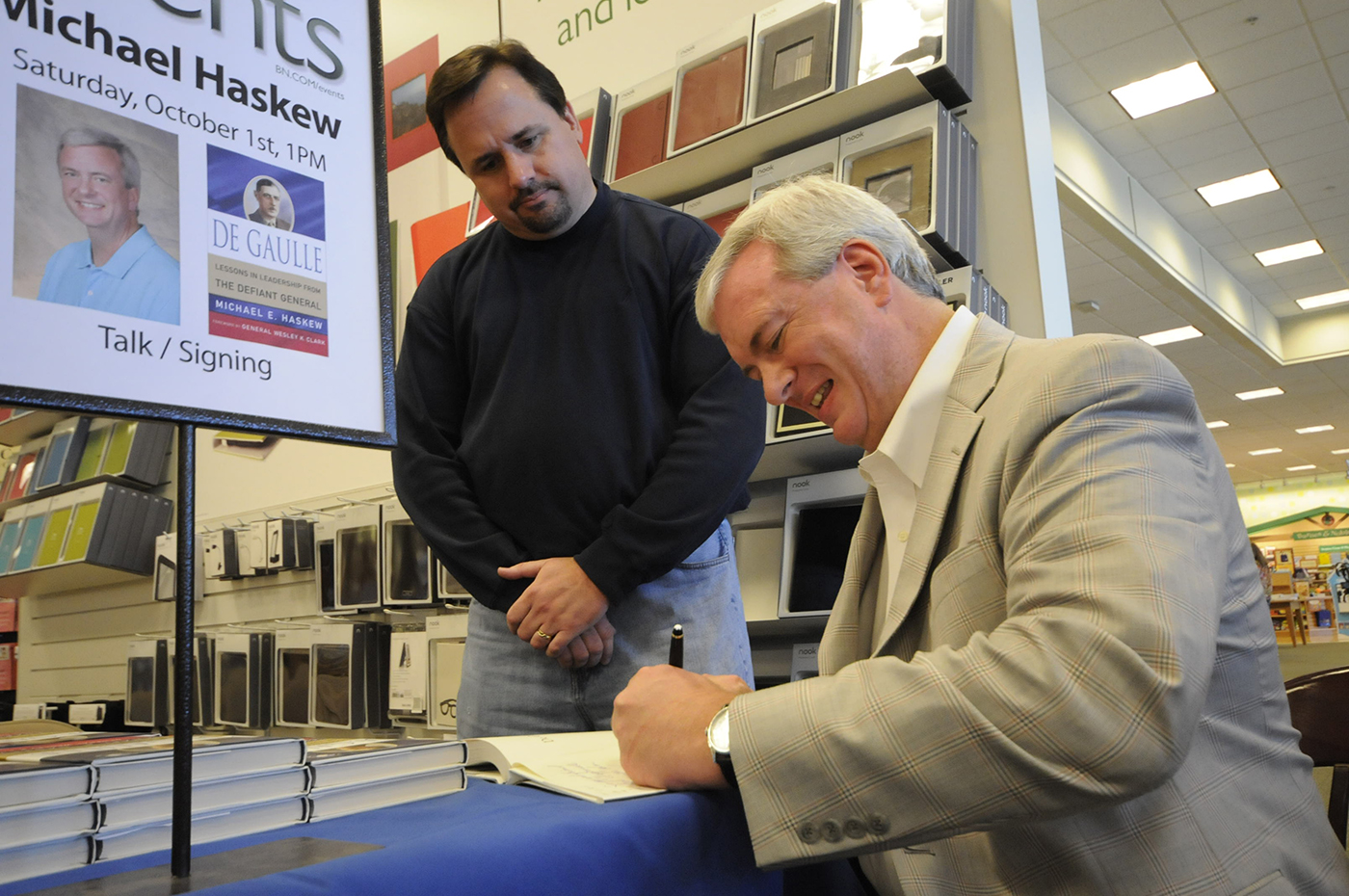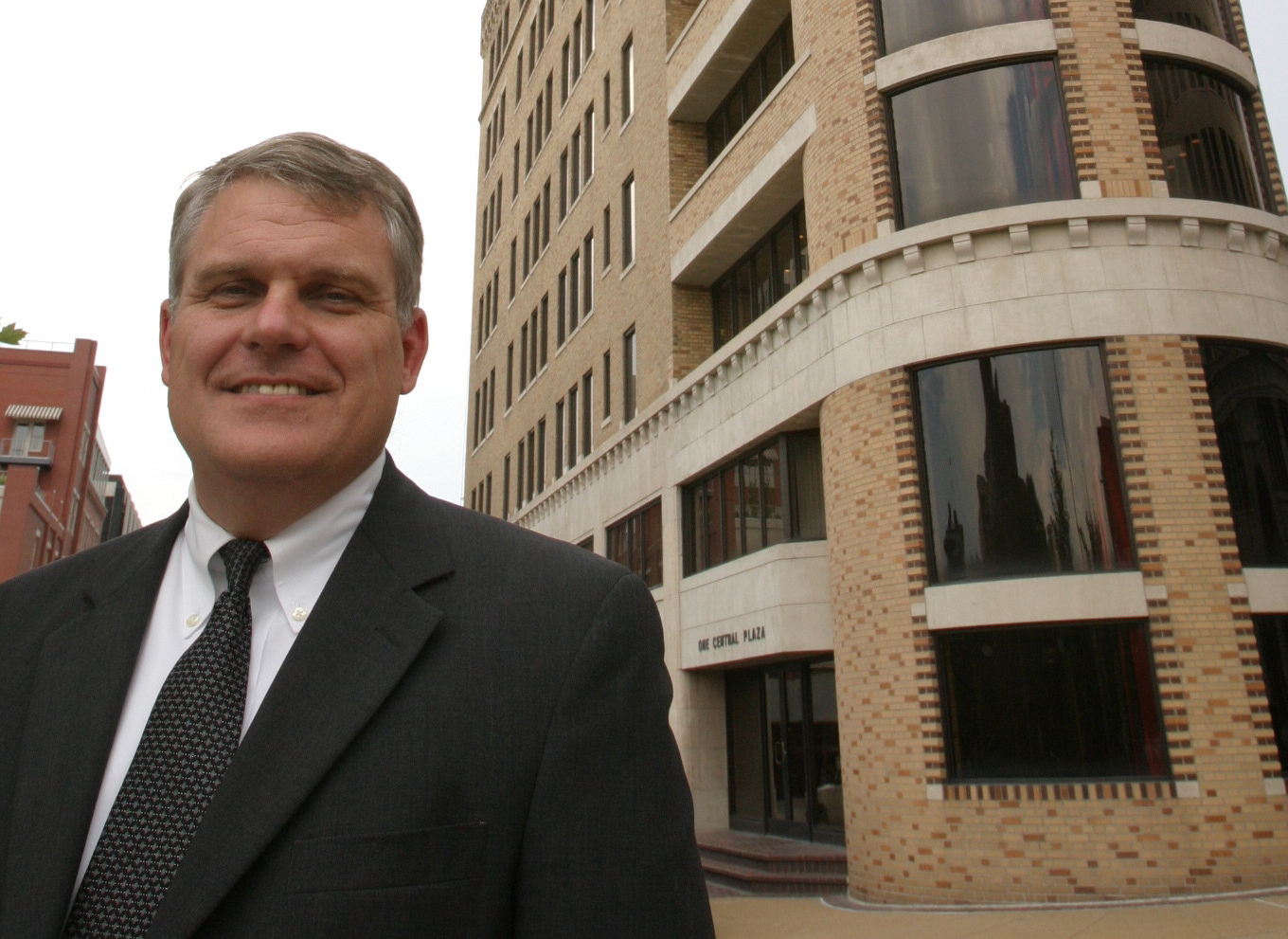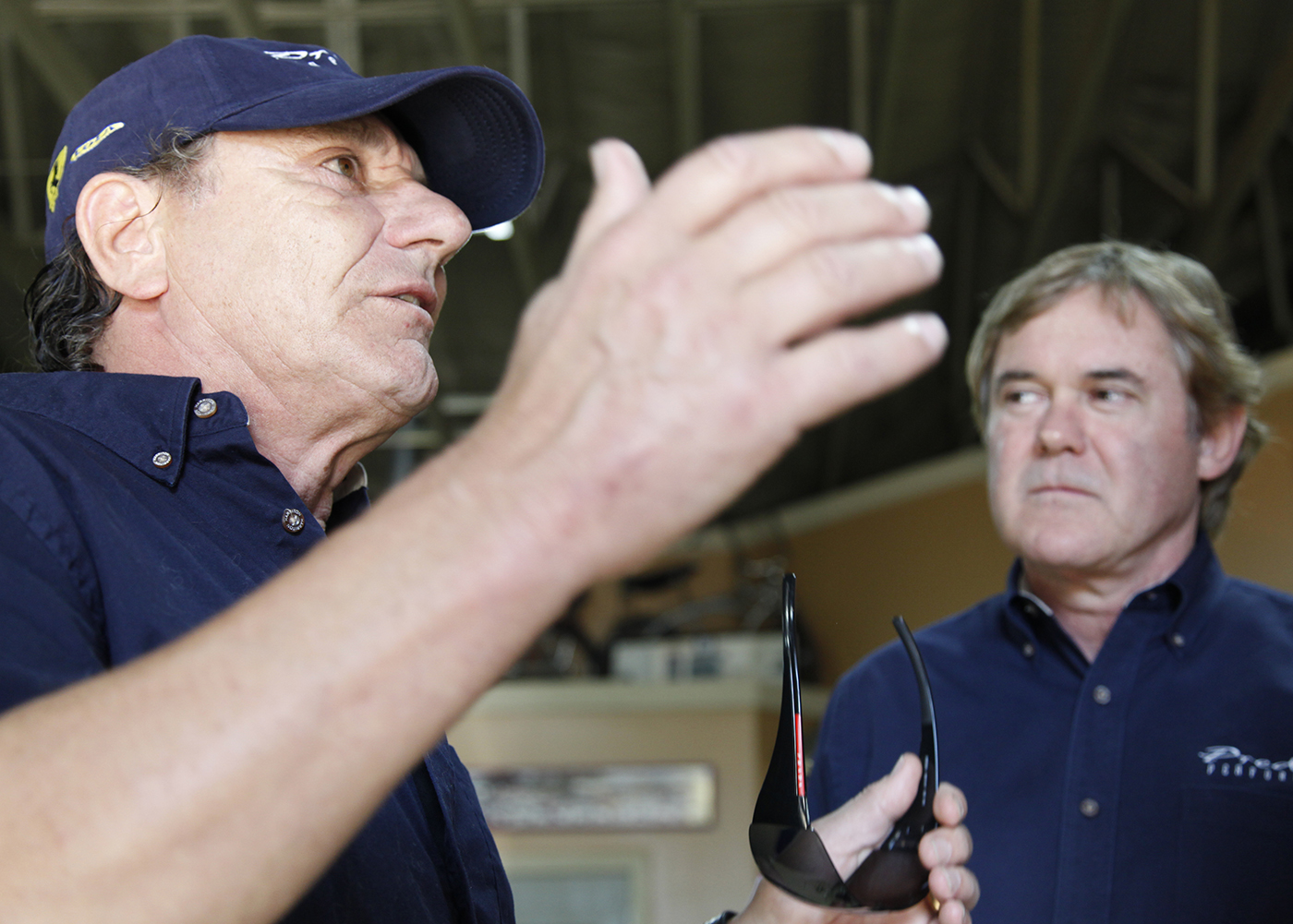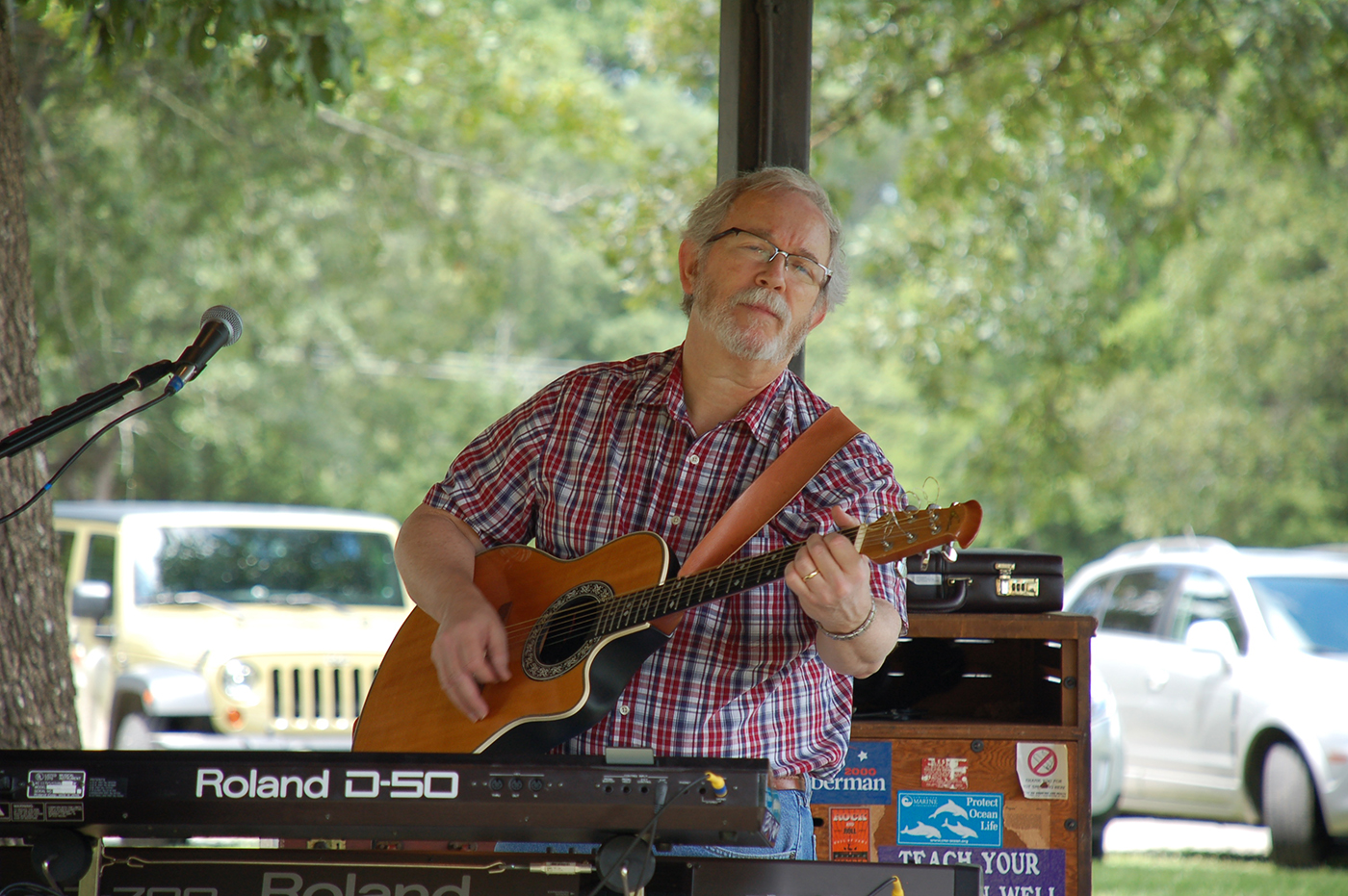What do executives do in their spare time?
When you are responsible for the jobs of hundreds of employees and investment of millions of dollars, the role of the CEO can be all consuming.
But many area executives still find time for their favorite past time -- often with as much passion as they pour into their jobs.
For some, the diversion comes in the form of music or art. Others play competitive bridge. One local executive seeks the adrenaline rush of car racing. Another spends night and weekend writing history books.
What are area CEOs doing when they aren't running area businesses? Here's a look at some area execs who have passions outside the office.
Bill Gracey - A musical path into health care management
The head of Tennessee's biggest health insurance company had a musical path of sorts into the health care industry and he's never given it up.
Bill Gracey was touring the country playing guitar with his brother Joe in a band called The Amazing Graceys when Joe developed throat cancer that first robbed Joe of his voice and ultimately took his life. The younger Bill, while caring for his brother, gained an appreciation for health care and soon got into hospital management. Three decades later, that ultimately led Gracey to Chattanooga and the top job at BlueCross BlueShield of Tennessee.
Even with his demanding executive schedule trying to navigate the changing world of health insurance, Gracey still manages to find two to three hours a week to play his guitar. He has even penned a few new songs in the past three months. In 2010, Gracey recorded a CD entitled "Bill Gracey: Then Again," that included 14 songs he wrote when he was in his 20s but only recorded in his 50s. Gracey wishes he could play more.
"The guitar sits in my home office as a motivator to work quickly and finish sooner," the 60-year-old BlueCross CEO quips.
Although Gracey hasn't played in any bands since his 30-year high school reunion a few years back, he said his musical experience taught him valuable lessons he still applies at work.
"Playing in a band is like being the leader of a team," he says. "One instrument may not be interesting or get you the sound you want, but several instruments performing together can create a variation that can be very invigorating. So whether it's four band members or 5,000 employees that you're conducting, you're all moving in the same direction and creating something that hopefully gains applause--whether from the audience or customers."
Paul Cummings - Painting with words and brushes
"Creativity and curiosity are not options," says Paul Cummings.
That's not an outside demand. Cummings put it on himself. Even if creativity and curiosity happened to be choices for the founder of Chattanooga-based Woople, he probably couldn't resist them anyway.
You'd be hard pressed to find a motivational leadership speaker who doesn't have those drives to begin with.
To wit: every few years Cummings challenges himself with a new hobby. They seem to stick, which, again, shouldn't come as a surprise given his vocation.
He started painting two years ago, after designing the winding and inventive interior of Woople on the North Shore.
"I thought, 'If I can design something like that, maybe I can paint,' " he says.
So he did, on his own, repurposing the spin-art concept from his childhood days. His first work came to be like this: He took eight different colors, poured them on a canvas, and dragged paint brushes to the corners. It worked, in that abstract art way. Later he searched Youtube for "abstract acrylic art" and watched video after video, time lapses of people painting.
These days, he paints four to five times a week, usually 10 p.m. to 1 a.m. in a studio space at his Harrison home.
"It's a great escape for me," he says. "It brings me a lot of peace."
Now he can specifically name his medium: abstract acrylic with resin. He also could be considered a professional at it.
"I messed up and sold a bunch," Cummings jokes. "I never meant to sell any of it."
A good friend saw Cummings' work in his home and asked who the artist was. When Cummings took the credit, his friend told him he could probably sell his creations. Soon after, Cummings put two in a New Orleans gallery and they sold -- for $5,000 and $15,000.
He's got dozens of pieces in his home and home studio. And he still shows at the Lisa Victoria Gallery in New Orleans.
Painting is a "great escape" from the demands of "the hard parts of work," as he puts it. And it makes him better at his day job.
"If there's no new concepts you're kind of stuck," he says. "Putting yourself into something you've never done before forces you to ask better questions."
It also helps you see parts of yourself that you didn't know you had, he says. That's what happened to him.
"I think we're all generally more creative than we think we are," Cummings says. "I'll paint for the rest of my life."
Fletcher Bright - The fiddler turned Realtor
Fletcher Bright has been making music since he first picked up a fiddle more than 75 years ago at age 6. By the time he got to McCallie School, Bright joined with his school mates, including Frank McDonald (later president of the Chattanooga Free Press who died in 2000), Ed "Doc" Cullis, ( later an orthodontist), and Ansley Moses (later mayor of Lookout Mountain) to form a bluegrass band dubbed the Dismembered Tennesseans in 1945.
Nearly 70 years later, Bright and his colleagues, along with other new band members, are still making music.
Bright, the spokesman and fiddler for the Dismembered Tennesseans, also has has taught Bluegrass fiddle for more than 18 years at several workshops in England, Canada and the United States. In 2005, he received the Tennessee Governor's Folk Heritage Award.
Through the years, Bright also has piloted the plane that has flown the band to concerts and has helped expand his real estate business across the South.
At age 83, Fletcher Bright is still in tune with the real estate industry as head of one of the Southeast's biggest commercial development and real estate business.
The Fletcher Bright Co., was started by Fletcher's father, Gardner, and James A. Glascock, in 1927, as a residential real estate company. Fletcher Bright joined the company in 1953 and, after his father died, the company acquired the Fletcher Bright name and began developing more properties, including Elder Mountain in the 1960s and shopping centers and other commercial development in the 1970s.
The company has developed and continues to manage more than 100 shopping centers across the South. Although Fletcher Bright's son, George, is now CEO, Fletcher remains active in the business and with his music.
"I have always said that real estate supported my fiddlin' habit," Bright quips.
That support was challenged during the Great Recession "when construction activity just stopped," Bright recalls. "There were some tough years and a lot of marginal businesses didn't make it."
"But my musical career went right through the recession, no problem," Bright says.
Mike Haskew - Banking on history
On most Saturday mornings, Mike Haskew is up well before dawn sipping coffee and working on his latest war history book or article.
It's a labor of love for the history buff, who works during the week as president of the Ooltewah-based Community Trust & Banking Co.
Haskew has authored more than a dozen history books and edited a World War II magazine while working in Chattanooga banking jobs for nearly three decades.
A history major and former sports writer for the Chattanooga News-Free Press, Haskew got into banking simply because he needed a job when his previous employer in Cincinnati was struggling to make payroll. After landing his first job with First Federal Savings and Loan in 1985, Haskew rose through management ranks at a half dozen financial institutions in Chattanooga. He says he likes banking because of his desire to help other people and local businesses succeed.
But while he figures the numbers at his day job, Haskew spends many nights and weekends working with words to tell stories about his lifetime passion about World War II and other wars of the past. Haskew says he has been interested in World War II since his mother bought him the Readers Digest Illustrated History of World War II when he was 8 years old.
"Living in this area, you can't help but have a real appreciation for history, especially the Civil War," Haskew says.
His World War II interest was sparked by stories he heard about his uncle, Sam, who was killed as a U.S. soldier in Anzio, Italy in 1944 when he was just 19 years old.
Haskew's newest book, "West Point 1915: Eisenhower, Bradley, and the Class the Stars Fell On," was released in October based upon more than three years of off and on research.
Next March, Haskew plans to release a Civil War history book on Appomattox and the Last Days of the Army of Northern Virginia and he is already working on other books about the 160-year history of the Colt firearm business and another on 100 years of military tanks.
Haskew says much of his writing success, like in his banking career, has come from his willingness to stay with a project, to do what you say you're going to to do on time, and to develop and maintain relationships for future business.
"Whether that's in banking or writing history books, I find that very satisfying," he says.
Frank Hughes - Figuring for success in business and bridge
As the son of parents who were life masters in playing bridge, Frank Hughes learned about the card game early in life.
But Hughes, the CEO for Cornerstone Community Bank in Chattanooga, says he only got serious about playing seven years ago. He plays without fail at least once a week and he tries to play in at last a couple tournaments a year. Until a few years ago, he was even more active in competing in national tournaments with his 4-member team dubbed "Frank and the grannies."
"My wife in no circumstances was interested in playing competitive bridge with me so I picked up with this team and I ended up being their escorts to a lot of tournaments around the country," Hughes recalls.
It's much different than his previous career as a colonel in the U.S. Marine Corps or as a football player at the University of Kentucky. But competitive bridge does require many of the numerical and analytic skills Hughes has employed in banking.
Hughes readily concedes he will not be at the level of such famous CEO bridge players as retired Microsoft CEO Bill Gates or Berkshire Hathaway CEO Warren Buffett.
"But it's a lifetime game that is a joy to play," Hughes says. "It mentally exercises your brain, but its complete relaxation -- and can take your mind totally off of work when you play."
Byron Defoor - Driving passion for speed
Chattanooga businessman Byron DeFoor is a classic-car owner and avid race-car driver.
Defoor supports his car racing passion from the success of his business ventures, including his commercial real estate and development business known as DeFoor Development, Inc., which he started in 1976, and the nursing home and assisted living development and financing business he co-founded in the 1990s, known as Contemporary Healthcare Capital.
When he isn't traveling around the country with his business pursuits, DeFoor is likely to be driving one of the cars he has collected through the years, including his 1960 Lola T-70, 1974 BMW CSL Turbo, or 1959 Jag XK 150.
In 2009, he won first place in the Rolex Endurance Series and second in class in the LaCarrera Pan-Americana, a 2,000-mile race across Mexico. He also competes in the annual Rolex 24 in Daytona, Florida where he rode in 2012 with AC/DC lead singer and fellow racing enthusiast Brian Johnson.
DeFoor, who with brother, Ken, is developing Waterside Lifestyle Center on Shallowford Road, recalled in an interview what he liked about participating in the 24-hour race at Daytona International Speedway.
"You want more power and to move up to the next level," he says.
Dr. Paul Hendricks Making music is strong medicine
Dr. Paul Hendricks put together his first band in 1965 at the age of 14. "We played top-40 stuff Steppenwolf, Grand Funk, Jefferson Airplane," he recalls. "It was classic rock before it was classic."
Today, when Hendricks has time away from the emergency room at Memorial Hospital, you'll often find him playing keyboards with his current band, River Canyon. For Hendricks, collaboration playing together with each person contributing in a different way is a common thread that makes music and his medicine exciting.
"I like playing music in a group," Hendricks says. "I like the interaction, the bouncing off of ideas. There's a lot of that in medicine too." That and a bit of creative improvisation.
"In the emergency room, you have to think on your feet and figure out the best way to do many procedures. Same way in music," Hendricks says. "There are lot ways to play the same note."
Hendricks believes playing in a band is powerful medicine in another important way.
"Music makes you feel like a kid again," he said. "It's the perfect midlife crisis and a lot safer than blondes and sports cars."
Stories compiled by Mitra Malek, Dave Flessner, Mike Pare and Robert Thatcher.

